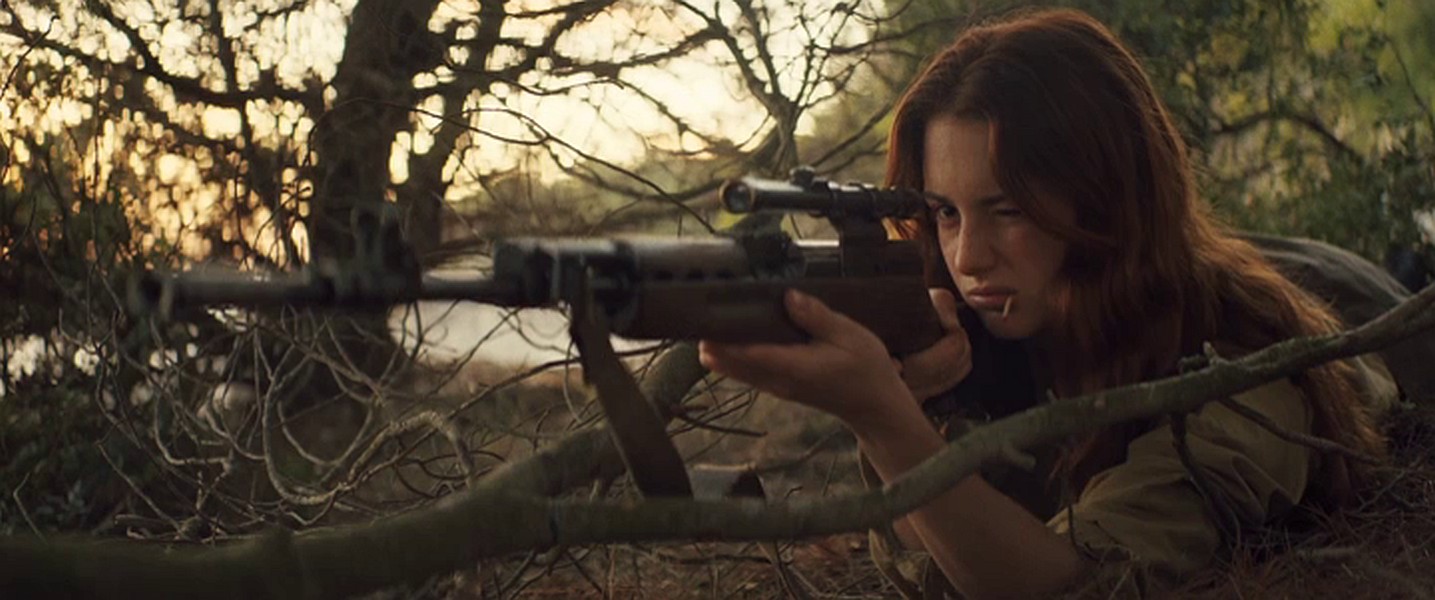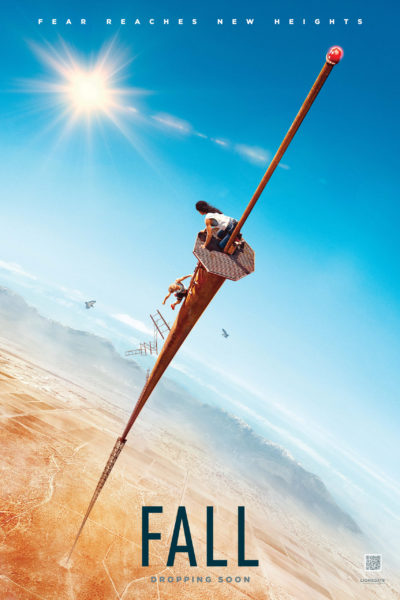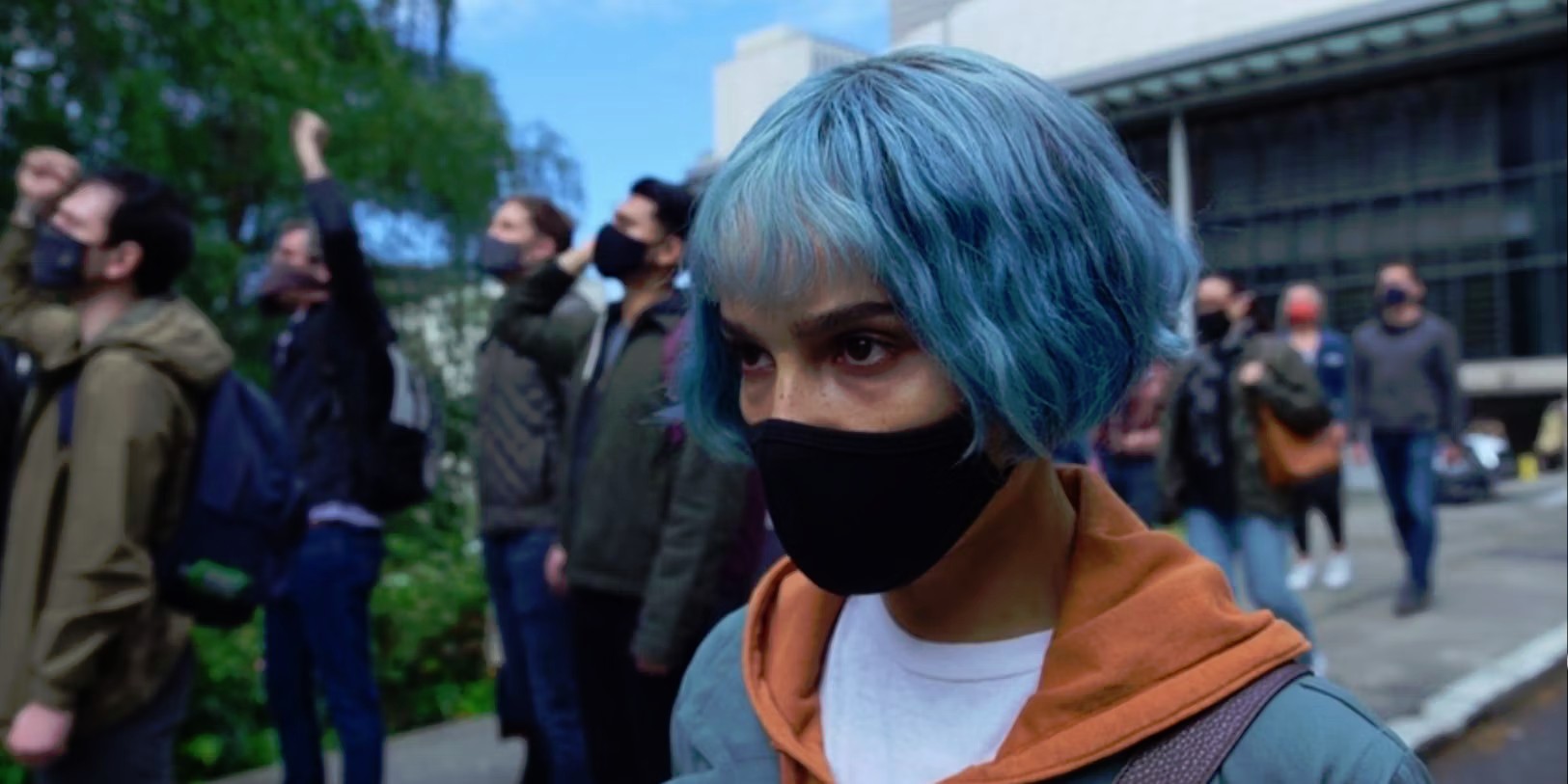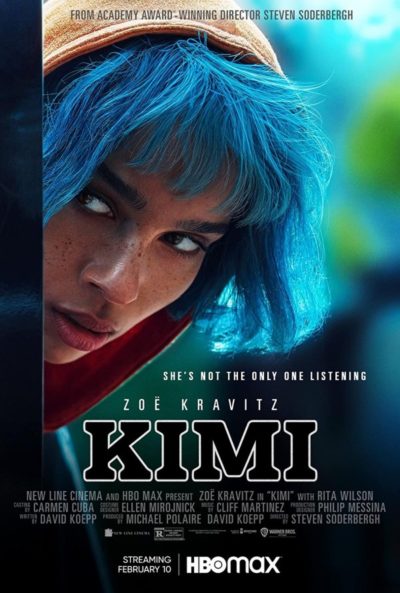 ★½
★½
“Send help.”
Yes, this is one of those cases where the title is the review, because I suspect many viewers will be signalling enthusiastically for help before reaching the end. I would start off by saying something snarky, like “That’s an hour and a half of my life that I’ll never get back.” But this would imply the film actually held my attention for an hour and a half, which would.. not be entirely correct. I was in the same room where it was playing. My eyes were open. I am not prepared to commit to much more than that. I also note that at the North American box-office, it took a grand total of $4,382, including a whopping $209 over its second week of release. I trust everyone involved in the production learned a valuable lesson from this.
This is a “war of the sexes” picture thinly disguised as fantasy, which throws elements from Alice in Wonderland, Peter Pan and Lord of the Flies into a blender, in the belief that doing so makes for some kind of feminist statement. It doesn’t. Not even when you burden the cast with lines like, “You’ve been in a war your whole life, you just didn’t know it,” or “You need to stop hurting yourself and start hurting others.” It begins with downtrodden waitress Ana (Grace Van Patten) crawling through an oven in the hotel where she works, and emerging onto a vaguely WW2-era shoreline. There, she bonds with a group led by Marsha (Goth), who lure male soldiers to the beach using fake Mayday signals, sniping dead any who make it past the turbulent conditions. Because all men are predators who deserve to die, right?
It plays like an “Is caffeine-free Pepsi alright?” version of Sucker Punch, with Ana crawling into her own headspace, trying to escape the traumas of everyday life, in a world with repurposed characters. For example, Marsha is the same, reluctant bride Ana comforted in the bathroom shortly before her break from/with reality. The only element of interest was Ana’s refusal to go down the same murderous path of intent as her colleagues. though this does lead to a feeling the movie doesn’t quite know what message it’s trying to send. At least Paradise Hills, which occupied similar territory, had a gorgeous visual sense to paper over the weaker plot elements. Here, there’s no such distraction.
This is not quite the worst “young women trapped in a surreal landscape” movie I’ve ever seen. That would be the near irredeemable awfulness of non-GWG film, Ladyworld. However, that I found myself consciously comparing this to it, is not a parallel to any movie’s credit. If there’s a lesson to be learned from Ana’s eventual fate, it’s that the cure for what mentally ails you, apparently involves a psychotic break, along with some quality girl time spend living on the beach alongside a crew of Aileen Wuornos wannabes. I guess it probably works out as cheaper than therapy.
Dir: Karen Cinorre
Star: Grace Van Patten, Mia Goth, Soko, Havana Rose Liu





 I never considered myself to be afraid of heights. I respect them, sure. But I am capable of going up the ladder to change that annoying smoke alarm battery without a safety net. This film though, literally gave me sweaty palms. It’s about climber Becky Connor (Currey) who lost her husband Dan (Gooding) in a rockface accident a year before, and has spiralled down into alcoholism and depression since. Her father (Morgan) gets her best friend Shiloh Hunter (Gardner) to intervene, and she convinces Becky the best thing is to get back on horse, with a climb of a two thousand feet tall, abandoned TV mast.
I never considered myself to be afraid of heights. I respect them, sure. But I am capable of going up the ladder to change that annoying smoke alarm battery without a safety net. This film though, literally gave me sweaty palms. It’s about climber Becky Connor (Currey) who lost her husband Dan (Gooding) in a rockface accident a year before, and has spiralled down into alcoholism and depression since. Her father (Morgan) gets her best friend Shiloh Hunter (Gardner) to intervene, and she convinces Becky the best thing is to get back on horse, with a climb of a two thousand feet tall, abandoned TV mast.  The journey up is where the moist hands started. I don’t care how nice the views might be, I’m afraid it’s going to be a no from me, dawg. Adding to the fraught tension, is the focus by Mann on the decaying structure: rust, missing bolts and general creakiness. It’s like Final Destination: you know something is inevitably going to go terribly wrong, it’s just a question of when, and the specifics. It duly does, leaving the pair stranded near the top, on a platform about the size of our dining table, with no route down or way to call for help. The rest of the film is the struggle of Becky and Hunter (she uses her last name, or her social media identity of “Danger Deb”) to find a way to do one or the other.
The journey up is where the moist hands started. I don’t care how nice the views might be, I’m afraid it’s going to be a no from me, dawg. Adding to the fraught tension, is the focus by Mann on the decaying structure: rust, missing bolts and general creakiness. It’s like Final Destination: you know something is inevitably going to go terribly wrong, it’s just a question of when, and the specifics. It duly does, leaving the pair stranded near the top, on a platform about the size of our dining table, with no route down or way to call for help. The rest of the film is the struggle of Becky and Hunter (she uses her last name, or her social media identity of “Danger Deb”) to find a way to do one or the other.  ★★★
★★★ Kimi indirectly discusses this attitude, but also seems to make a clear point that there is a need to leave your own four walls sometimes, because not everything can be handled from your laptop. That said, it’s quite disturbing how much
Kimi indirectly discusses this attitude, but also seems to make a clear point that there is a need to leave your own four walls sometimes, because not everything can be handled from your laptop. That said, it’s quite disturbing how much